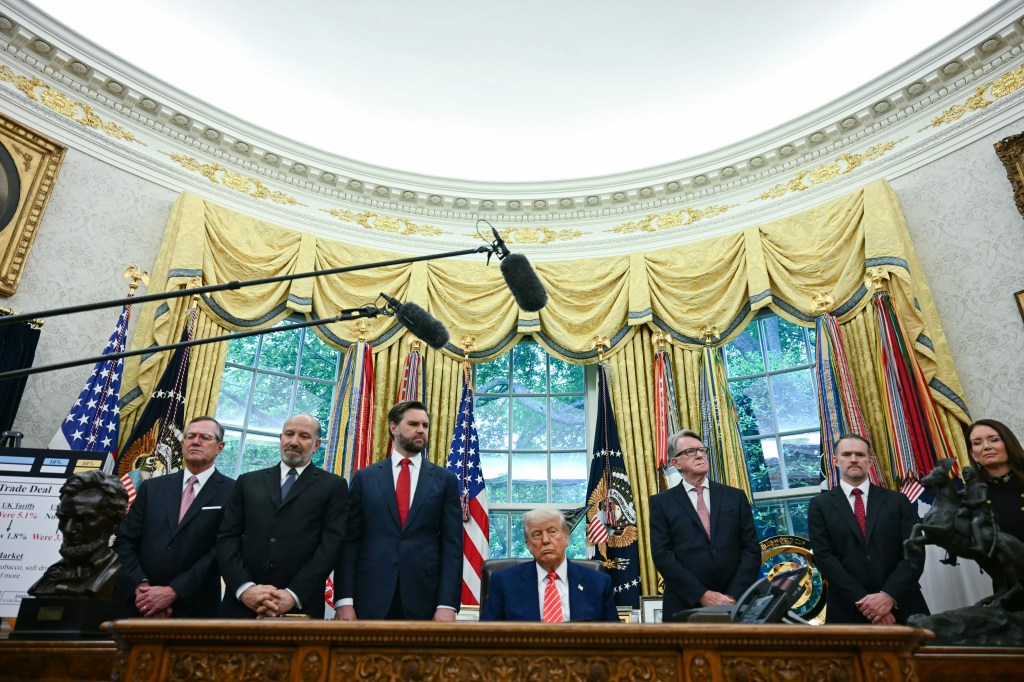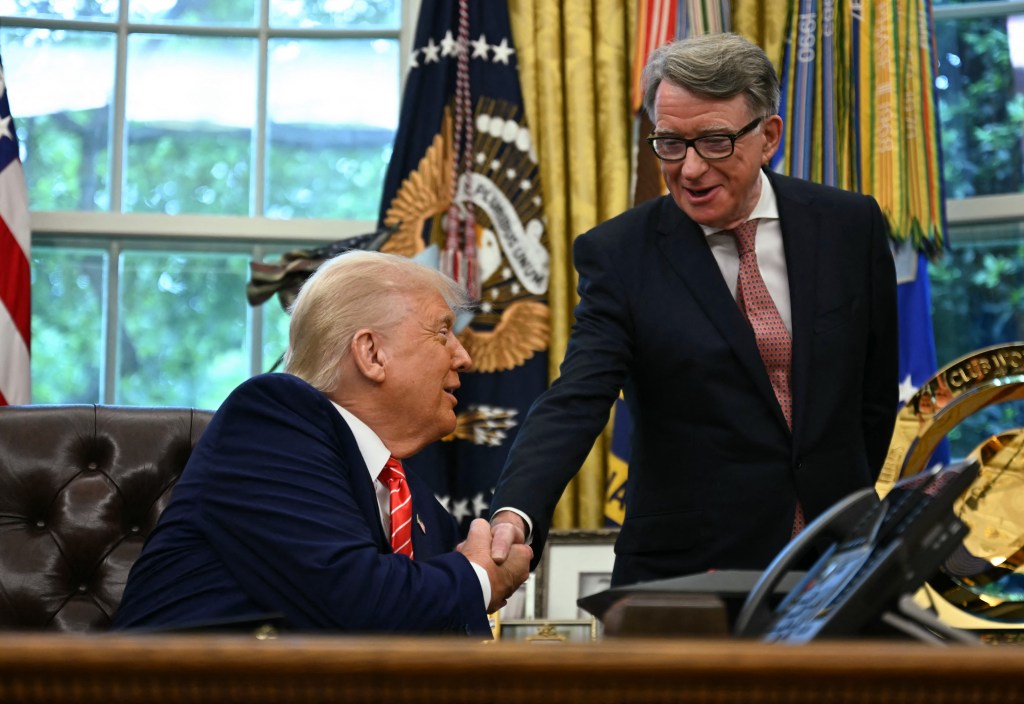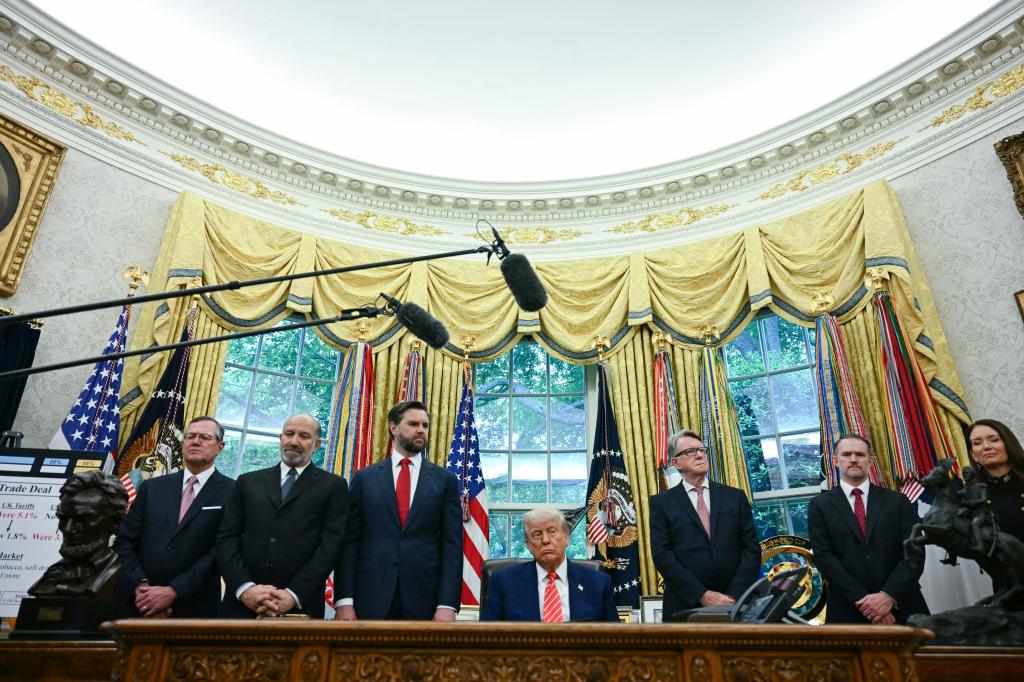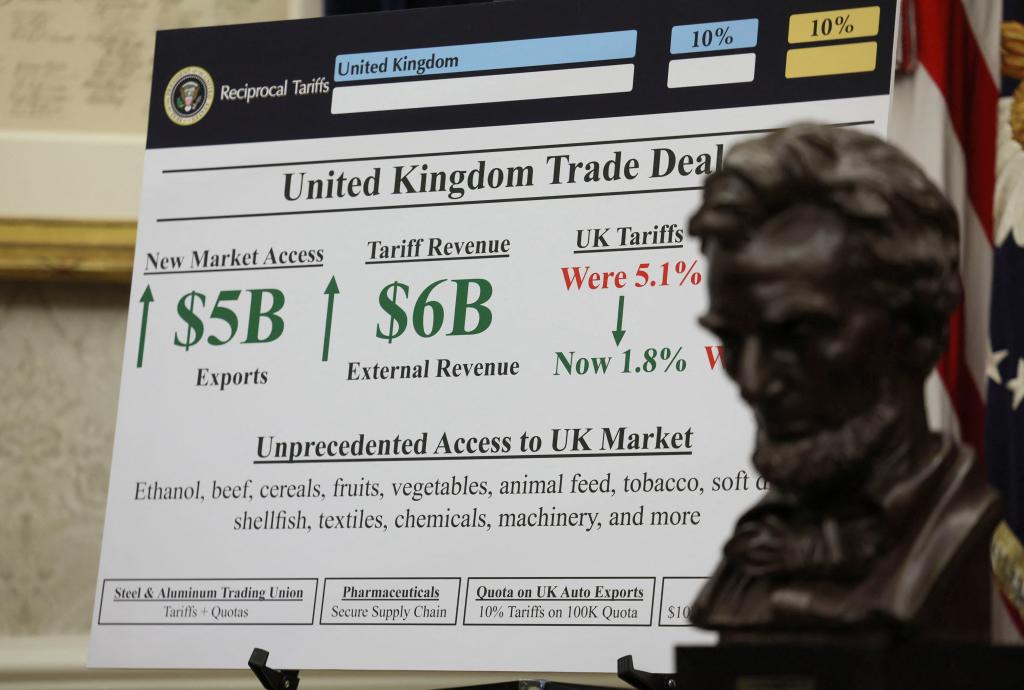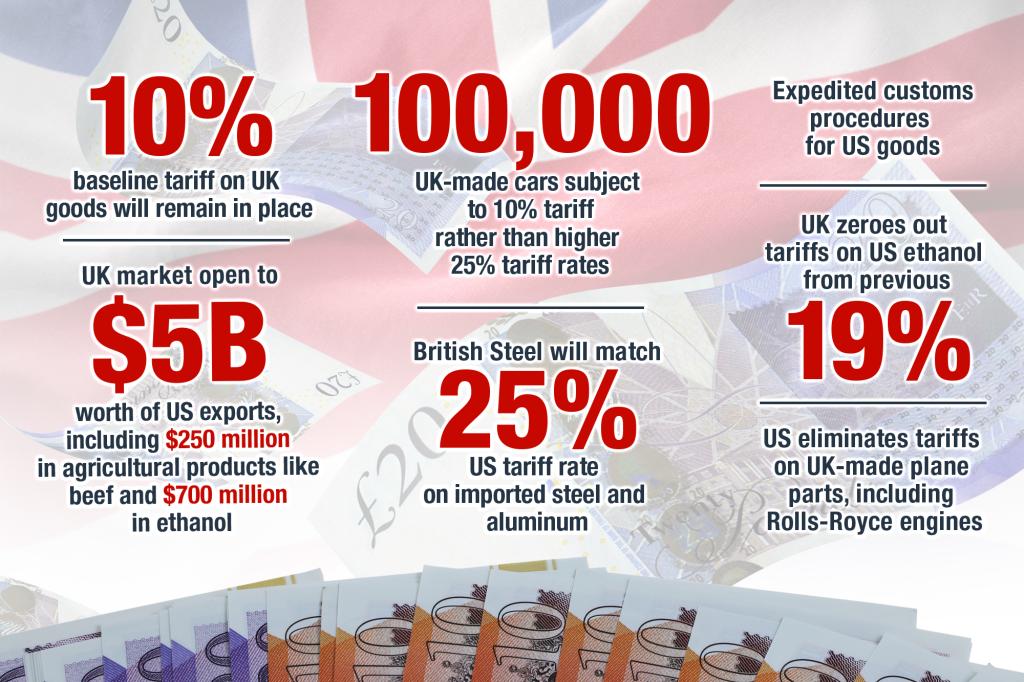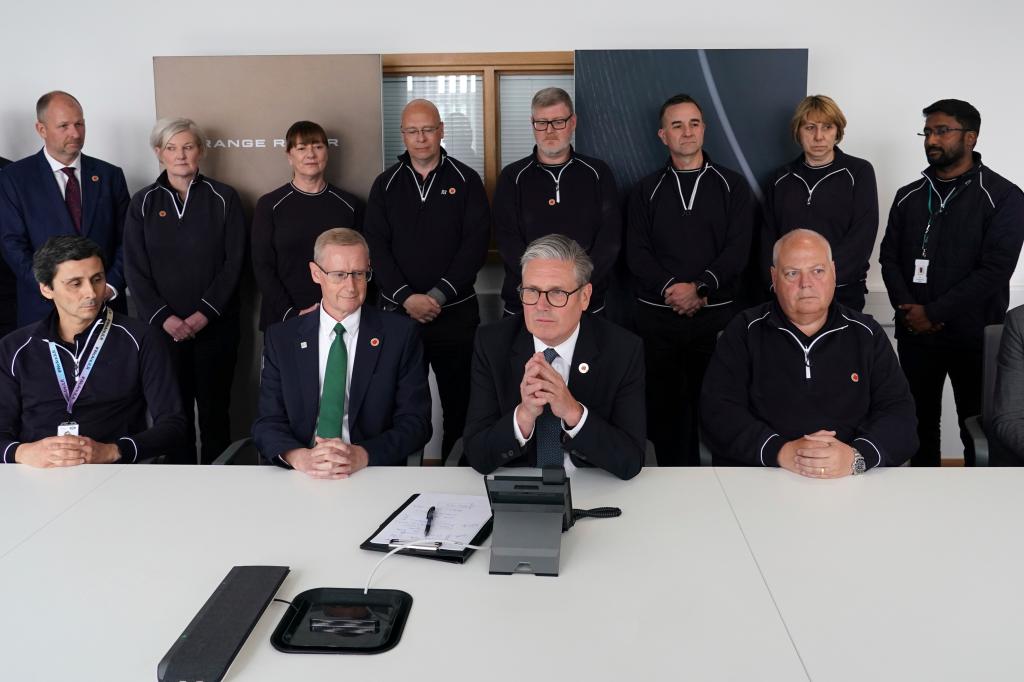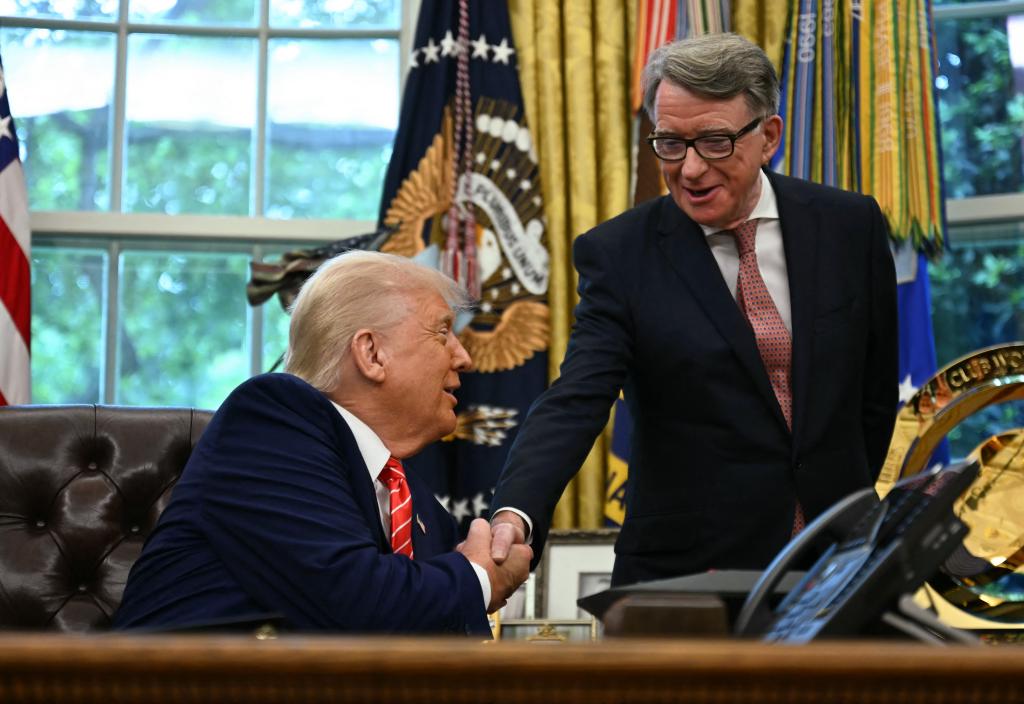Trump details framework of landmark US-UK trade deal: ‘Opening up the country’
WASHINGTON — President Trump announced Thursday that the US and UK had agreed on the framework of a trade deal – the first established since Trump’s “Liberation Day” tariff announcement last month.
Trump, 78, told reporters in the Oval Office that the UK will be “opening up the country” to American goods, especially agricultural products like beef.
Notably, the current tariff rate of 10% will remain in place, but Washington will give London some breathing room on products like cars and plane parts — as well as inviting the ally into an “economic security agreement” with the US.
“The UK was largely closed, very much closed to trade, and now it’s opened,” the president proclaimed after British Prime Minister Keir Starmer joined the announcement from across the Atlantic via speakerphone.
The final details of the deal are still being written up, the president said, before claiming the 10% baseline tariff on British goods was “probably the lowest” rate possible for future bilateral deals — though that rate is roughly triple the average US levy prior to the 47th president taking office.
The deal will exempt 100,000 UK-made cars from Trump’s new 25% global auto tariff, making them subject to the 10% rate instead.
The UK, meanwhile, is dropping its ethanol fuel tariff from 19% to zero, allowing market access to the corn-based fuel worth up to $700 million — while the US eliminates tariffs on British-made airplane parts, including Rolls-Royce engines.
London is also applying 25% tariffs on foreign steel and aluminum — the same rate Trump dictated in February — with a White House fact sheet describing that arrangement as “a new trading union for steel and aluminum.”
“The deal includes billions of dollars of increased market access for American exports, especially in agriculture, dramatically increasing access for American beef, ethanol and virtually all of the products produced by our great farmers,” Trump said.
“The UK will reduce or eliminate numerous non-tariff barriers that unfairly discriminate against American products … They’ll also be fast-tracking American goods through their customs process, so our exports go to a very, very quick form of approval, and there won’t be any red tape,” he went on.
“We’ll also receive new market access for American chemicals, machinery and many other industrial products that weren’t allowed.”
Because the deal has not been finalized, it was not immediately clear how the UK would alter rules around imported American beef grown with hormone enhancement, or a prohibition on the American standard of the washing of chicken with chlorine.
“We are going to discuss all these types of issues,” promised US Trade Representative Jamieson Greer, “and obviously the importing country, whether it’s us or them, you got to follow the rules on those types of things. But our point is the rules need to make sure that they are based on science.”
“We’ll have it all very conclusive, but the actual deal is a very conclusive one,” Trump said. “We think just about everything’s been approved.”
“They’ve agreed to open their markets,” crowed Commerce Secretary Howard Lutnick, “and that will add $5 billion of opportunity to American exporters … and we still have a 10% tariff on which will produce $6 billion of revenue for the United States.”
Starmer said the tentative bargain, which was still being hashed out ahead of the announcement, is “hugely important for sectors like car manufacturing and for steel and aluminum and so many others.”
“We can finish ironing out some of the details, but there’s a fantastic platform here, including, of course, on the tech side,” the UK prime minister said.
The president has enjoyed a close relationship with Starmer since the two met at the White House Feb. 27.
The PM specifically praised Lutnick and Greer on Thursday as playing key roles in the talks.
Trump had seemed unaware of a potential UK deal as late as Tuesday, telling The Post when asked about reports that one was close: “Who? What? … What about the United Kingdom? … They’re offering us concessions? I hope so.”
Not everyone in Trumpworld was taking a victory lap over the agreement.
“While it may be a good first step, ‘frameworks’ aren’t enough,” one source close to the administration said. “There needs to be tangibles, specifics, and serious enforcement mechanisms. Let’s not overpromise and underdeliver.”
White House trade adviser Peter Navarro, however, argued that the UK deal will be a “template” for future agreements.
“Every country is like fingerprints,” he told reporters Thursday afternoon, revealing that Lutnick and Greer will lead additional talks with US trading partners — with Greer booked for negotiations through early July.
“They’re all different in how they take advantage of America. So with each country we have to walk through, how high are their tariffs?”
“Let me just say,” added Navarro, 75, before making an apparent reference to China and the European Union, “that any country which retaliates against the United States, which is simply trying to get fairness, is making a grave mistake, and it’s not a road I think that we want to go down.”








